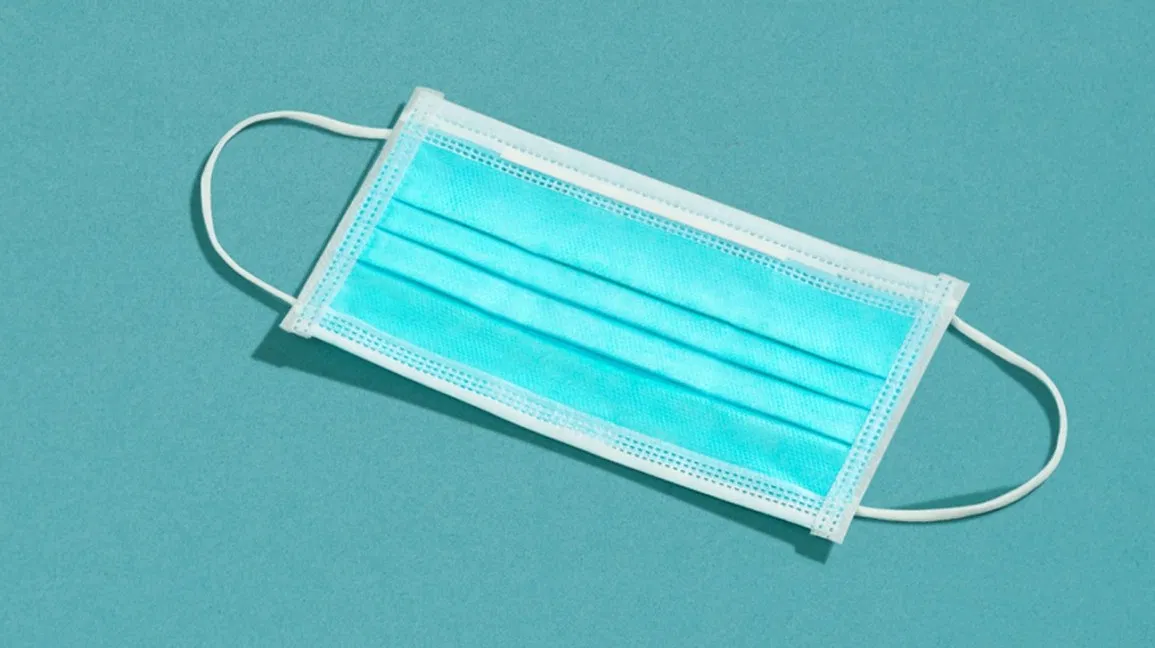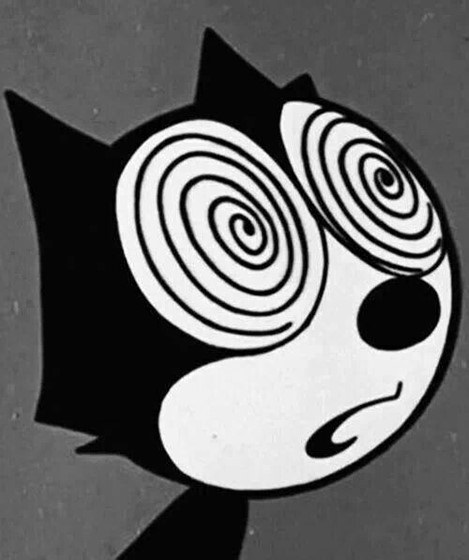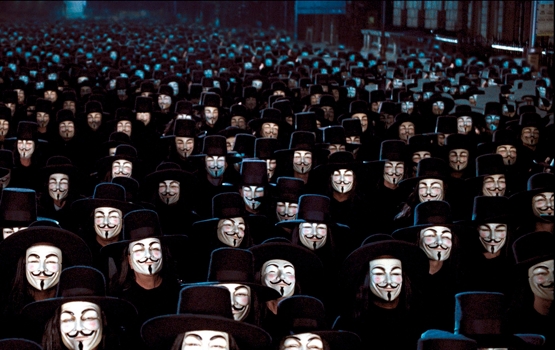A few days ago I needed a new pair of headphones. So I went to a mobile phone shop outside my compound. I had to wait while the proprietor went to his other shop to get what I wanted, leaving me alone with the shop lady and her son who was playing video games in the back. We struck up a conversation.
I learned she’s from Fujian and grew up speaking Minnan dialect and only learned Putonghua later in life. She’s afraid she doesn’t speak it well. Her son has a foreign teacher, also from America, but he doesn’t speak any Chinese. We bonded over both being outsiders in Shanghai.
The proprietor came back. As I paid and turned to leave, the woman called to me. I saw she was holding something. When I got a step closer I saw it was a face mask in a clear plastic baggie. She held it up carefully, encouraging me take it out. It was the last one in the baggie. “Take it, you can use it.”
 At home I set it aside. I almost surely won’t use it unless I absolutely have to, but neither could I bring myself to toss it, not when so many people on are going without. Who would have thought that the world would come to a place where a simple face mask could be a gesture of friendship between strangers?
At home I set it aside. I almost surely won’t use it unless I absolutely have to, but neither could I bring myself to toss it, not when so many people on are going without. Who would have thought that the world would come to a place where a simple face mask could be a gesture of friendship between strangers?
—
This past weekend masks returned to the US headlines when Jerome Adams, Surgeon General of the United States, did a flip-flop on his official advice to Americans about mask wearing, saying on live TV that Americans “should now consider wearing masks when going out in public so as not to spread the disease to others.”
Huh.
This is the same person who on February 29 told the American public NOT to wear face masks with this now-infamous tweet:
 It wasn’t just the contents of the tweet which were so impactful, but its tone which suggested that anyone thinking about buying a mask was either stupid or selfish, the way an exasperated parent might talk to a sullen child. The result was not only did Americans not make any effort to wear masks, those few who did were, to greater or lesser degrees, stigmatized. I personally know one person in San Francisco who was yelled at by a complete stranger for wearing a mask.
It wasn’t just the contents of the tweet which were so impactful, but its tone which suggested that anyone thinking about buying a mask was either stupid or selfish, the way an exasperated parent might talk to a sullen child. The result was not only did Americans not make any effort to wear masks, those few who did were, to greater or lesser degrees, stigmatized. I personally know one person in San Francisco who was yelled at by a complete stranger for wearing a mask.
A month later and America is in deep shit. The 62 total cases on February 29 has become 335,524. The stock market has tanked, come back and tanked again. 10 million Americans have filed for unemployment. The US debt is nearing 24 trillion. Oops.
So what changed? According to Adams, new information has come to light: “we now know that asymptomatic people can spread the virus”.
Huh?
This is either baffling, unbelievable, malicious or laughable. For starters it is well known that flu patients are infectious at least a day before clinical symptoms appear. There’s no controversy about that. This NIH study from 2009 bears that out. And even if it’s not 100% certain, is this something we are really going to roll the dice on?
After the reversal, real science began to emerge – which had been lurking in plain site all along – showing that mask wearing does have incremental positive impact preventing the wearer from getting sick, as well as preventing the wearer from getting other people sick.
Honestly, do you need a medical degree to figure this out? Ask any human being alive this simple question:
You’re in a room with 1000 people, one or more of them has coronavirus but you don’t know who, would you rather everyone be wearing masks or nobody be wearing masks?
And the answer 100 times out of 100 is going be “I’d rather everyone wear masks.”
Simple right? Not when there’s not enough masks to go around. And that’s really what the experts have been communicating to us all along:
“Yes actually masks probably do help but we don’t have enough of them and they need to go to medical professionals first so we are going to lie to you and tell you they aren’t effective so that you won’t panic buy them but now we are in shit so deep that no one can deny reality anymore and yeah masks actually are something that can help you and other people too and um by the way can you make your own?”
Trump, of course, is disregarding his government’s own advice, (“I just don’t want to be doing – somehow sitting in the Oval Office behind that beautiful Resolute Desk, the great Resolute Desk, I think wearing a face mask as I greet presidents, prime ministers, dictators, kings, queens, I don’t know, somehow I don’t see it for myself.”).
The issue has caused soul searching in America. The New Yorker writes:
“There is an odd sort of American exceptionalism at work in our reluctance to wear masks. Perhaps we have become too used to archly dismissing the widespread wearing of masks in certain Asian countries, not only during pandemics but in regular flu seasons; there is a notion that they make people look silly, or maybe even weak or timid.”
It has engendered serious cognitive dissonance among ordinary Americans: how could our top scientists have gotten this so wrong? The charitable view, as mentioned above, is that they were protecting front-line health care personnel. The uncharitable view is they misled the American people in order to cover up the fact that America was woefully, perhaps fatally, unprepared for an epidemic.
There is no great sport in uncovering a government lie. But one so asinine, so petty, and so harmful – will Americans really just let this one pass?
—
This epidemic has broken a spell which has had a powerful grip on the American mind, including mine, for a long time.
 When the epidemic began to penetrate into daily reality – this was around Jan 20 or so in China – my wife bought a half dozen Vogmasks – nice, durable n99s – as well as a supply of the more familiar blue and white “surgical” kind. When we flew from Shanghai to Macao on Jan 22, we wore masks on the plane. And that, believe it or not, was the first time in my life I’ve worn a mask because of disease.
When the epidemic began to penetrate into daily reality – this was around Jan 20 or so in China – my wife bought a half dozen Vogmasks – nice, durable n99s – as well as a supply of the more familiar blue and white “surgical” kind. When we flew from Shanghai to Macao on Jan 22, we wore masks on the plane. And that, believe it or not, was the first time in my life I’ve worn a mask because of disease.
When we arrived in Macao about half the people had on masks and half didn’t. But by the time we flew back to Shanghai on January 26 everyone had one on and it’s been that way ever since. Even in the last two weeks, as normalcy has returned, the masks have stayed on, at least outside.
Shortly after we arrived back in Shanghai, a nation-wide mask rationing system was introduced. It’s run through the resident committee of residential compounds. Once a week each household gets 5 masks. You receive a text message telling you when and where to pick them up. They aren’t free. Each pack cost somewhere between 3-5RMB. This is still going on even today. Few people in China have lacked a mask over the last 2 months – for 1.5 billion people that’s a staggering amount of masks.
But I have to ask myself: why did I never wear a mask before this coronavirus? The simplistic answer is: I didn’t have to. That’s true, but it’s only a part of the story. The other part is a blurry mixture of folk superstition and the firm belief that everything in life must be convenient if it’s anything.
Let’s take the last part first. Let’s be honest, it’s a bother to wear a mask. You have to have them handy all the time, they fog up your glasses, they never fit exactly right and they are hot. But in terms of annoyance level it’s less “being put in an iron maiden” and more “where did I put my car keys”.
Beyond that, and more importantly, there is some dim part of me which steers me away from fastidiously avoiding exposure to germs specifically in the belief that it will make me healthier in the long run, something akin to herd immunity but on the individual level. I have absolutely no science to back this up and I have no idea where this idea came from, but it’s there.
So maybe Adams and the rest of the scientists have been motivated by the same atavistic non-science which dumbly mumbles the mantra of grandmas and Black Swans the world over: “Whatever doesn’t kill me makes me stronger.”
The day after we got back to Shanghai, I ordered another half dozen Vogmasks off Amazon and had them sent to Shanghai. Something tells me they won’t be available again for quite a while. Now, even in the office, I wear one, and I don’t see myself taking it off anytime soon. Even when it does eventually become acceptable to take them off, I imagine that come flu season every year, I’ll don a mask before stepping out the door.
Why not? What is there to lose?
—
Mask wearing runs counter to a “what’s in it for me?” ideology. You can see that clearly in Trump’s reply to his government’s advice: “I’m feeling good, nothing in it for me, not gonna wear one.”
 Masks, we now understand, are only partially about protecting the wearer and are totally about protecting other people. Any surgeon would know this, of course, but the average person doesn’t get it. I didn’t get it either until Feb 3 when, while walking around the main square in my compound one afternoon, it hit me like a ton of bricks: masks are about other people. Not only that, masks work best when EVERYONE buys in. The health protection gains amplify exponentially as more and more people wear masks.
Masks, we now understand, are only partially about protecting the wearer and are totally about protecting other people. Any surgeon would know this, of course, but the average person doesn’t get it. I didn’t get it either until Feb 3 when, while walking around the main square in my compound one afternoon, it hit me like a ton of bricks: masks are about other people. Not only that, masks work best when EVERYONE buys in. The health protection gains amplify exponentially as more and more people wear masks.
We – and I mean all of us, scientists included — don’t think well in exponential terms. We couldn’t digest that exponential viral expansion would turn 100 cases into 300,000 cases in a month. Likewise we couldn’t see that getting to a tipping point in terms of mask wearing is one of the essential pillars of a flu epidemic mitigation strategy (not the only one, of course, but an essential one).
Achieving network effect is difficult – just ask anyone in Silicon Valley, that’s their Holy Grail – especially when it’s something as dramatic as putting something over your face.
Even though we would like to think that the highest medical authorities in the land – who in theory should have been studying this shit for decades – would know better, the reality is that they are more like us than not. They didn’t see it until it was far too late, with historically tragic consequences. Names like Jerome Adams and Anthony Fauci and Alex Azar will go down in history as symbols of exponential incompetence.
—
There is something here very specific to masks which must not be overlooked. To put it in perspective just yesterday Trump touted the benefits of an anti-malaria drug called hydroxychloroquine, openly opining at the press conference: “what do you [Americans] have to lose?” He could just as easily said the same about wearing a mask. But he didn’t.
What is it about masks that makes them so sensitive?
Beyond the fact they are in short supply, masks, to re-state the very obvious, cover up our faces. Did you know that in the US (and many other countries) it is against the law to cover up your face entirely? True story. The so-called Anti-mask Law dates back to the 19th century and over the years has been invoked in regards to everything from anti-rent activism to Occupy Wall Street to Quebec separatism to the KKK. It’s tool to fortify “the center” against radical factions. It is essential in defining the center against whatever the faction represents.
 It’s a part of the basic compact of co-existence in our large, multinational, multiethnic community: you need to put your face behind your words and actions otherwise you can expect the full machinery of the law to come down on you. Your face is your passport to participation. It would be hard to underestimate the importance of this anchor, how critical it is as an unmoving reference point in a world of constant change. Even if the average person will never sit down face to face with a terrorist or a protestor or racist, he or she knows that, at the end of the day, someone will. The Law guarantees it.
It’s a part of the basic compact of co-existence in our large, multinational, multiethnic community: you need to put your face behind your words and actions otherwise you can expect the full machinery of the law to come down on you. Your face is your passport to participation. It would be hard to underestimate the importance of this anchor, how critical it is as an unmoving reference point in a world of constant change. Even if the average person will never sit down face to face with a terrorist or a protestor or racist, he or she knows that, at the end of the day, someone will. The Law guarantees it.
But if everyone is masked up the question of authenticity becomes murkier. The shape of the lips, the point where the nose, eyes and forehead meet, the earlobes, the humble nostrils — all these are critical elements to establishing congruence, to affixing identity. In Chinese, your physical face is “miankong” (面孔) where “mian” refers to “surface” and “kong” means “hole” – your face is a hole that punches through the surface.
With a mask on, even a medical mask, you’re covering up three of those holes. And if you pair it with goggles, which is technically what you should do in this pandemic, you’re officially unrecognizable. Even the most advanced facial recognition software will have trouble picking up someone masked and goggled. The panopticon breaks down.
I don’t think of China as a particularly postmodern place – modernity after all is more of a Western idea – but the West is. Even before the epidemic, the problem of the real was a real problem in the West (fake news anyone?). Since the epidemic it’s only gotten worse. Having a country of masked Americans would precipitate an existential crisis which dwarfs the current health one.
The question of “Who are you?” would permeate down to the level of background familiarity, disrupting that baseline of reality which invests meaning to the word “trust”. Without that dark matter to hold together the American multiverse, all bets are off. Lord knows there is little else binding Americans together these days.
It’s not a cultural thing, nor is it American exceptionalism, but rather an inability for the broader multicultural community of Americans to function without the face as primary access point to the real. China, on the other hand, doesn’t seem to have this problem, maybe because it’s largely homogeneous, or because they already know that all the news is fake news, or (let’s just to throw it out there) maybe the 1949 proletarian revolution really did succeed in eliminating working class alienation. Who knows? My money is on homogeneity.
—
Relations between nations are in a bad place right now and masks are sitting in the dirty dark heart of it. China makes 90% of the masks in the world and China is me-firsting masks produced in China. Then there are companies like 3M, headquartered in Minneapolis, Minnesota, with mask production all over the globe. As a multinational they are selling masks to the highest bidder. That’s capitalism right? But Trump is pissed because it’s an “American” company and, hey, shouldn’t they be helping America first just like Chinese producers are helping China first?
There’s a vast network of brokers, gangsters, fraudsters, and other desperate people which has rapidly grown up around this suddenly critical commodity. Guanxi favors are being called in in big, dramatic ways. Accusations of “international piracy” are being leveled between allied countries because of masks. It doesn’t take a mastermind to realize that this is the kind of stuff that provides convenient cover for a war: “you have the masks and won’t give them to us so we are going to take them.”
Meanwhile a cottage industry of industrious home-sewers has grown up in America, one that would make the 18th century proud. Batik cotton, a pattern downloaded from a website, a sewing machine and a Facebook account and you’re in business. I know people doing this. My mom is doing this. Churning out a couple dozen hospital grade cloth masks a day with no shortage of grateful recipients. Elastic is the critical supply deficiency now. Don’t let anyone tell you otherwise.
Alien researcher researching world war 3: “Looks like it was caused by uhhh a lack of that stretchy stuff. You know, like a rubber band but not exactly a rubber band.”
American women sitting at home watching Netflix and sewing masks will be a lasting image from the epidemic. Let’s just hope it doesn’t become American women sitting at home sewing U.S. flags – those are mainly made in China too.
—
Masks have an importance and significance beyond simple functionality. They are symbols. And as such they are a site of contention.
It’s possible that in the future the mask becomes a fashion statement, especially among the young. Indeed corporations have already started to to co-opt the mask, literally putting their brand name on your face, hijacking the most important real estate you own.
 The mask also to me sometimes looks like a bandage. And in that it delivers special poignancy. This virus has wounded us. Beyond the families which have been torn by death, we as a species have been wounded, not critically, but seriously. Our confidence, our pride, our vast belief in our own special destiny has suffered terrible injury.
The mask also to me sometimes looks like a bandage. And in that it delivers special poignancy. This virus has wounded us. Beyond the families which have been torn by death, we as a species have been wounded, not critically, but seriously. Our confidence, our pride, our vast belief in our own special destiny has suffered terrible injury.
The mask then is a symbol of solidarity. First and foremost with the people in the room with you, but also with the entire globe. We have all suffered this collective injury. The mask will help it heal.
Finally, I would be remiss to overlook the fact that the mask also looks very much like a gag. It is, after all, literally a covering over the mouth. It stifles communication.
This we cannot allow to happen. The mask cannot and should not rob us of our voices. Not now. Not anymore.
